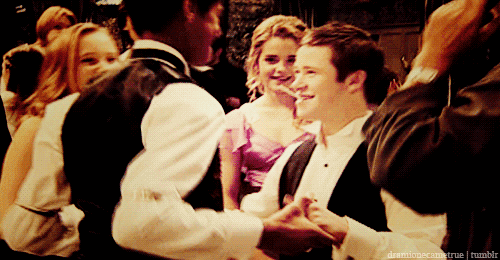But in the past few days/week, events have happened on TV and books that made me go "Ok, I have an hour spare, let's try and write this up".
So, question: when a story is released into the world, who owns it?
Before you all go "That is a stupid question!", hear me out.
In the past few days, the TV show Gilmore Girls has released 4 feature-length episodes and we have been told that the final ever (to my knowledge) episode will end with 4 words. These four words are important as these were the words the creator of the show, Amy Sherman-Palladino, always wanted to end the show on. But, due to events (aka her leaving the show at the end of season six due to network and then the show getting cancelled the following season), fans never got them. Now, fans have seen the show and have heard the words, it's thrown a mix of reactions. Some fans are excited, and others... not so much.
This is the same with How To Get Away With Murder. In the winter finale of season three, we discover that one of the main character is dead. This is a huge shock for fans as it's such a small cast... and fans reacted with shock and panic and "This is going to ruin EVERYTHING about the show!"
This is the same with books, films and radio. Remember readers react when they were reading Veronica Roth's Allegiant? Or film goers reactions when they were watching the Hans scene in Frozen? Or certain moments in BBC Radio 4's The Archers while it was tackling Helen's domestic abuse storyline? Or fans reactions when JK Rowling shot down a question on whether Sirius Black was gay?
Yes, these stories belong to the creators. But once it's out of their hands/control, does it still below to them?
Technically, yes. It does. Open up any book and you will see, on the information page, that story's copyright belongs to the author. With TV shows and films, the ownership belongs to either the broadcaster (BBC, ITV, BSkyB, etc) or the production company (Warner Bros, ABC Studios, Endemol Shine Group, etc).
But... and here is where things get a little tricky with my thinking. Has anyone heard of the term "The Author is Dead"?
The term means that, once the story is out of the creator's control, they no longer have input. Because all the information should have been told. So, some people would say that, unless certain information/facts are put into the story and the creator states it in an interview or on their website, that information isn't valid.
So, this would mean things like Pottermore wouldn't count because it's "outside" the story.
Let's stay with Harry Potter. A good example of this is Sirius and Lupin's relationship. In the books, they are shown as close friends. In some parts of the fandom, fans wonder if they were gay or bi and might have feelings for one another. It's never stated in the books that they are gay or bisexual so fans can say that they are. JK Rowling tweeting that Sirius isn't gay is null and void because of the Author is Dead and this wasn't in the story.
Let's say one reader who has read the Harry Potter novels has always read Neville as having autism. There's nothing in the book confirming or denying this, but if the reader sees Neville this way, then there's nothing wrong with that. This reader just reads a character different, compared to another reader who might say "I never read Neville as having autism. But I always read Luna as Muslim." Which could be different from a third reader going "Never saw Luna or Neville that way. But I do think Dean Thomas and Seamus Finnigan are in a same sex relationship". A fourth reader might go "Really? Never saw those characters the way you guys have, although, I've read Professor Flitwick as a baddass transgender..."
And I could go on and on. You see, every reader comes into a story and away from a story differently compared to the next reader.
These readers might read any book - say, Fangirl by Rainbow Rowell and all could say "I saw Cath, Wren and their father as black" which goes against what most illustrations show.
But these ideas that readers have could go against the creator's own.
So, who's right? The creator or the audience?
My theory? Both. Yes, the creator created this story and we, the audience, must respect the work and their own ideas. If the creator says "I wrote a character this way because ...", the audience must respect this is how the author saw them.
However, this is the two-way street. Just because the creator saw this character one way, doesn't mean the audience should either. If they see said character a different way, the author must respect this, not try and shoot it down and go "No, you're wrong!". The creator should go "I thought of them this way, but if you see them different, that's ok."
It works both way. Stories and information isn't going to be please everyone, but we should respect each person's take on stories, characters and themes within the story. Respect is key.

No comments:
Post a Comment